Beyond being a general elections year, 2023 was indeed a defining one for many Nigerians and observers of events in Africa’s largest economy.
From petrol subsidy removal to naira scarcity, the presidential electoral victory of APC’s Bola Tinubu, several union strikes, food inflation, foreign exchange crisis, Victor Osimhen and Asisat Oshoala’s continental and global victories, Mohbad and Rotimi Akeredolu’s deaths, the travails of ex-bank chief Godwin Emefiele, the episodes of the last 12 months were shocking to many, disappointing to some and unfathomably exciting to others.
Here’s a highlight of the top stories that shaped the nation in 2023:
1. Naira Scarcity
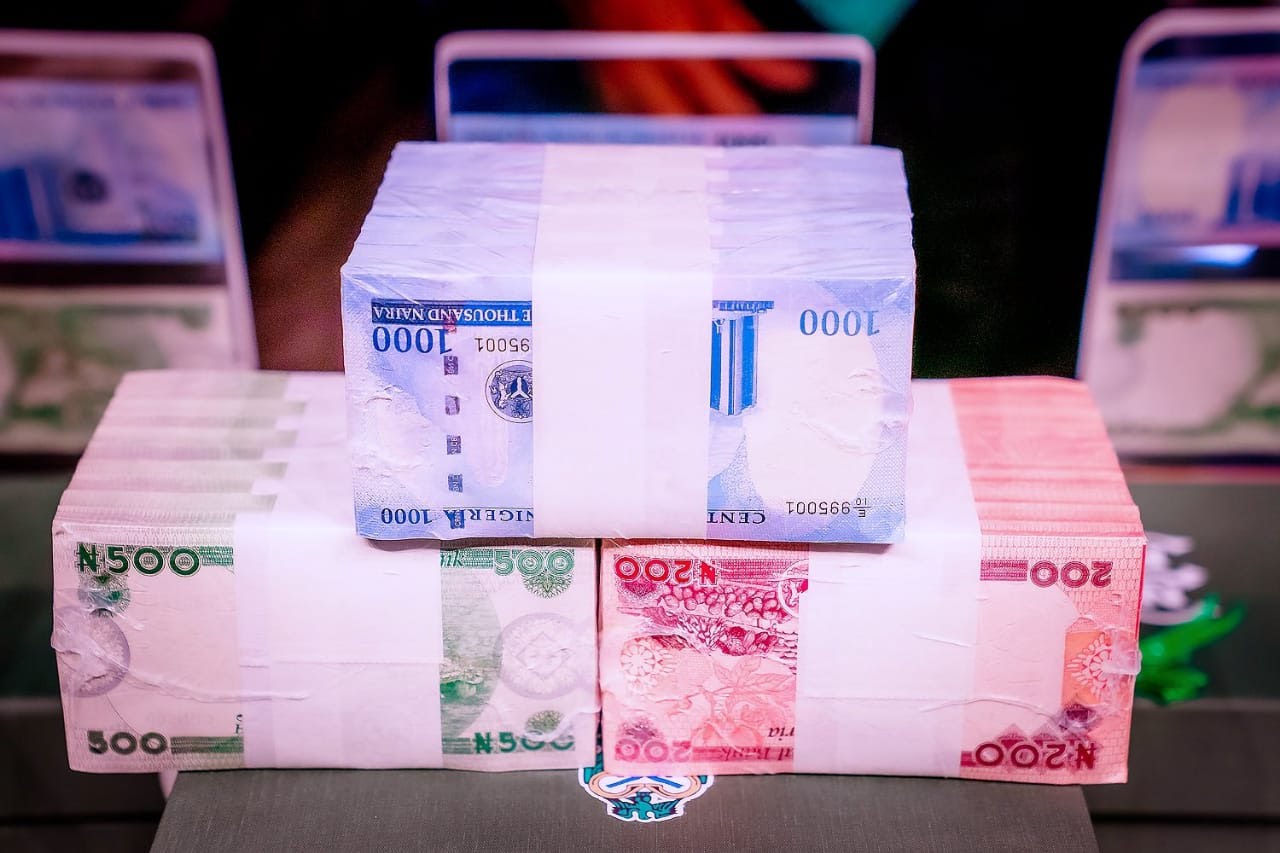
Naira scarcity was a carryover challenge from late 2022. Outrage followed the redesign of three naira notes – N1,000, N500 and N200 – by the Central Bank of Nigeria (CBN). The deadline for the validity of old naira notes and the attendant scarcity of new banknotes shook the economy with many small businesses badly affected.
The ugly phenomenon saw extortion of cash-strapped Nigerians by exploitative Point of Sale (PoS) agents. Protests followed across the country with protesters burning some banks and Automated Teller Machines (ATMs).
Politicians including the then-presidential candidate of the All Progressives Congress (APC) and eventual winner of the poll, Bola Tinubu, were unsparing in berating the CBN for allegedly trying to undermine their chances at the February and March polls through the scarcity of naira notes.
Some then APC governors led by Nasir El-Rufai of Kaduna State subsequently approached the Supreme Court and the court (in March 2023) extended the validity of old notes till December 31, 2023. The Supreme Court modified the ruling in November, allowing the old naira notes to remain valid indefinitely.
2. Tinubu Wins & Court Battles
” alt=”” aria-hidden=”true” />
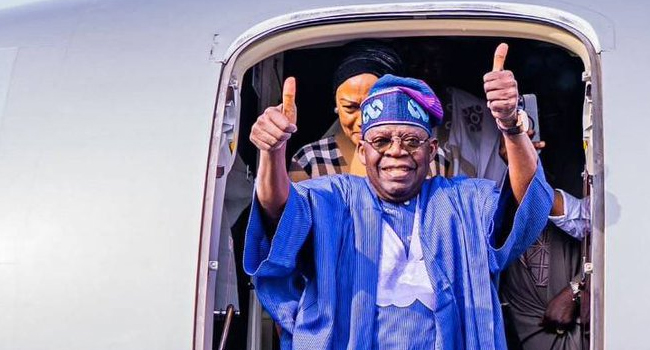
The 2023 general elections came with much anxiety but, on March 1, three days after Nigerians went to the polls, Bola Tinubu, a former Lagos State governor, was declared the winner and Nigeria’s President-elect.
The All Progressives Congress candidate polled 8.7 million votes to defeat former-associate-turned-competitor, Atiku Abubakar of the Peoples Democratic Party (PDP), who scored 6.9 million, and ex-Anambra State governor, Peter Obi of the Labour Party who garnered 6.1 million.
The two opposition politicians rejected the results and demanded a cancellation of what they called a “sham” of an election. They challenged the matter up to the Supreme Court but the ex-Lagos governor won at the end of the day.
3. ‘Fuel Subsidy Is Gone’
On March 29, 2023, with the Muhammadu Buhari administration over after eight years, the new President, Tinubu, gave the nation’s economy a jolt in his inaugural speech when he declared that ‘Fuel subsidy is gone!’.
The surprising announcement forced fuel prices at government-owned petrol stations to surge from below N200 to more N600 per litre. Many businesses and families are still groaning under the impact of this policy but the new administration has continued to defend the move as necessary arguing that the subsidy regime favours the rich and the corrupt, not the poor.
The removal of the subsidy on petrol was a big blow to the finances of many Nigerians as food prices, transportation costs, and prices of commodities were adversely affected. These price increases, in turn, led to job cuts in virtually all sectors. In the first weeks that followed the subsidy removal, stories of Nigerians walking to and fro different destinations due to soaring transport costs. Many others with cars dumped them at home with some selling off their cars, especially those with high fuel consumption, as they tried to adjust to the subsidy removal.
President Tinubu’s administration has announced various measures to cushion the effect and has promised that the move would pay off in the long run.
4. Forex Crisis
Another development that had a major impact on the year was the decision of the Tinubu administration to float the naira, allowing the value of the naira to “be determined by market forces”. The decision has seen the value of the naira plummet with the dollar exchanging for over N1,000 at the parallel market. The new administration has since announced some interventions but they have yet to shore up the currency.
5. Emefiele’s Travails
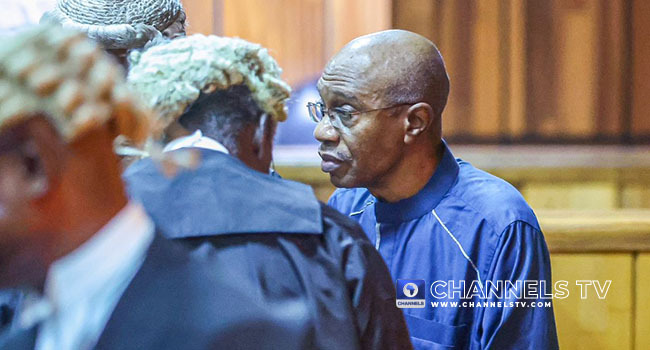
Former Central Bank Governor Godwin Emefiele’s travails dominated the headlines for months this year. The travails started less than two weeks after the inauguration of President Tinubu. By June 9, 2023, after nine years of leading the Central Bank and Nigeria’s monetary policy, Emefiele had been suspended by the President. The next day, he was arrested by the Department of State Services (DSS) with a viral video showing him being tucked into a Hilux van and whisked away. He would be held for months before the secret police passed him over to the Economic and Financial Crimes Commission (EFCC) for money laundering and fraud-related offences, allegations he has denied.
Emefiele would later be released on bail after about six months in custody, but the trial of the ex-bank chief is still ongoing with fresh allegations being leveled against him by a presidential investigator probing his tenure as CBN chief.
6. Exit Of Multinationals

With biting double-digit inflation, soaring food prices, and hardship occasioned by subsidy removal, in the third quarter of the year, Nigerians again grappled with the news that multinationals that had operated in the country for decades were closing shop.
GlaxoSmithKline (GSK), a British multinational pharmaceutical and biotechnology company known for many household brands like Panadol, Sensodyne, and other drugs shut its Nigerian subsidiary, saying it would adopt a distributor-led model for the country’s market. Also, multinational consumer goods and manufacturer Procter & Gamble exited Nigeria during the year, saying that it had become increasingly difficult to operate in the country.
7. NLC & Other Strikes
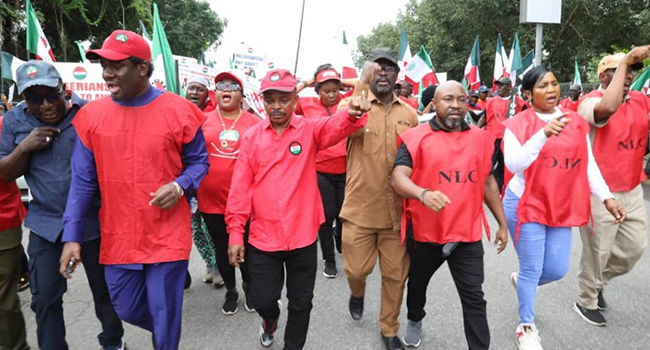
As usual, strikes by labour unions surfaced prominently in the year. There were several protests and industrial actions by the Nigeria Labour Congress (NLC), the Trade Union Congress (TUC), as well as their numerous affiliates including the Nigerian Medical Association (NMA), and the Nigerian Association of Resident Doctors (NARD). Common denominators for the strikes include demands for increased salaries and better welfare packages for members.
Prominent amongst the many labour actions in the year was the declaration of a nationwide by the Organised Labour in early November over the brutalisation of NLC President, Joe Ajaero, in Imo State.
8. Mohbad’s Death
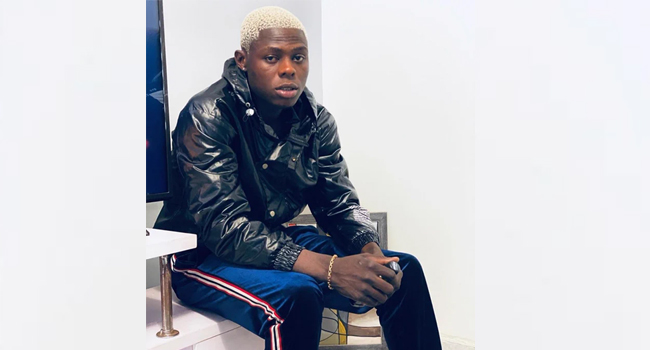
On the entertainment scene, there were highs and lows as well as a roll call of unfortunate slips from this terrestrial ball but the demise of Nigerian rapper, IleriOluwa Aloba better known as Mohbad, who died in controversial circumstances on September 12 triggered a nationwide outrage and calls for justice.
The hashtag, #Justice4Mohbad, spread like wildfire similar to the #EndSARS protests of 2020. Several protests were held across the nation, attracting swift reactions from the Federal Government and the National Assembly. The Inspector General of Police, Kayode Egbetokun, also joined in reacting to the protests and assured Mohbad’s fans that justice would be served on the matter.
Already, some arrests have been made and an autopsy conducted to ascertain the cause of the singer’s death. The case is undergoing investigation and many Nigerians are expecting that justice be served.
9. Fubara, Wike Fued
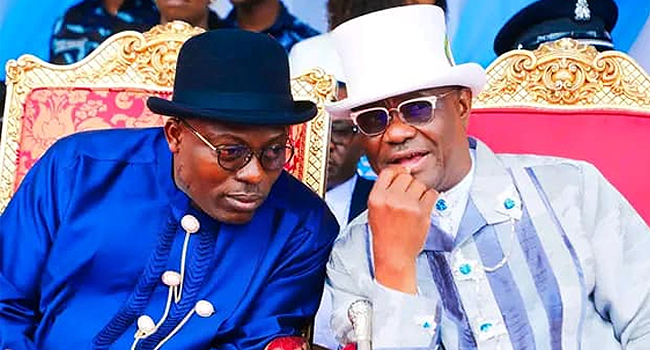
In oil-rich Rivers State, all was not calm in the last quarter of 2023. The cause – a fallout between Governor Siminalaye Fubara and his predecessor and godfather Nyesom Wike. As the discord between both men careened towards irreconcilable, the state and the country were dragged in to witness major drama. Enter the House of Assembly with an impeachment plot against the governor.
That move would lead to the Assembly complex being torched and subsequently demolished with the members divided into camps – one on the governor’s side and the other in support of Wike. It would take the intervention, one week to Christmas, for both men to sign a peace deal. The deal itself has come under criticism but Governor Fubara has promised to implement the agreement.
10. Obaseki, Shaibu Feud
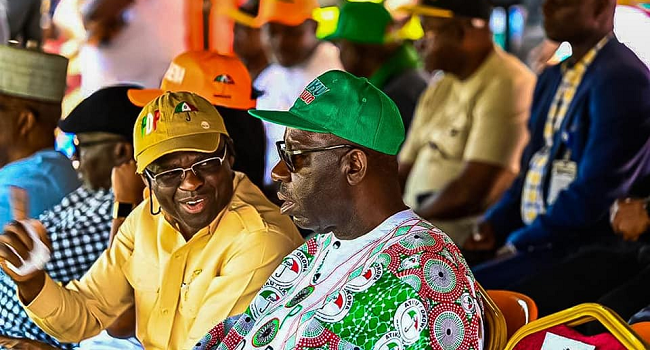
Before things almost went off the rails in River, another state witnessed a fallout between allies. In Edo State, 2023 did not represent the best of times for the relationship between Governor Godwin Obaseki and his deputy, Philip Shaibu. Both men found themselves in a superiority battle with Shaibu looking to succeed his boss and his boss preferring another for successor. There have been accusations and counter-accusations, alleged impeachment plots as well as a plea for forgiveness and the the announcement of forgiveness. Meanwhile, Shaibu declared his intention to run for office in the 2024 poll in the state, a decision observers believe may rock the boat once again.
11. Osimhen, Oshoala Win Big
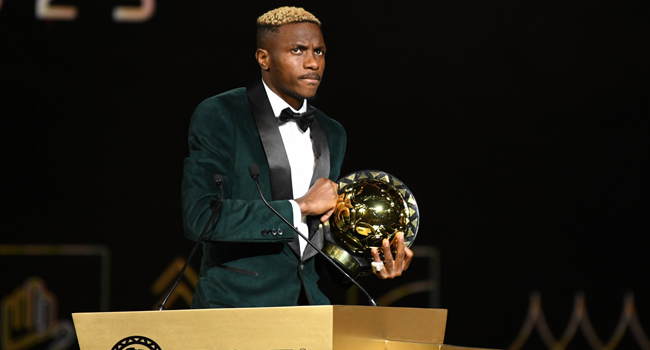
The year was not all gloomy as Super Eagles’ star Victor Osimhen and his Super Falcons’ counterpart Asisat Oshoala won big at the Confederation of African Football (Awards) in early December.
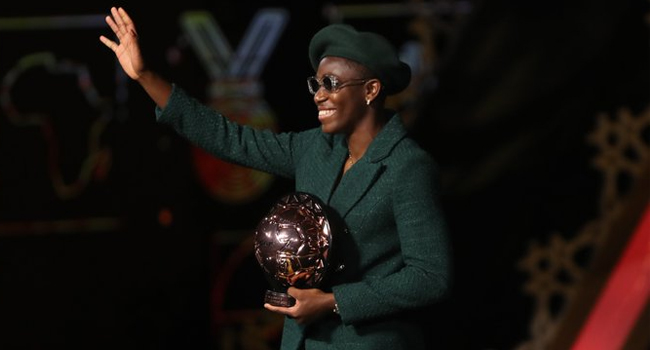
At the event in Morocco, Osimhen was named African Footballer of the Year while Oshoala was crowned the queen of continental football.
12. Akeredolu’s Death & Ondo Politics
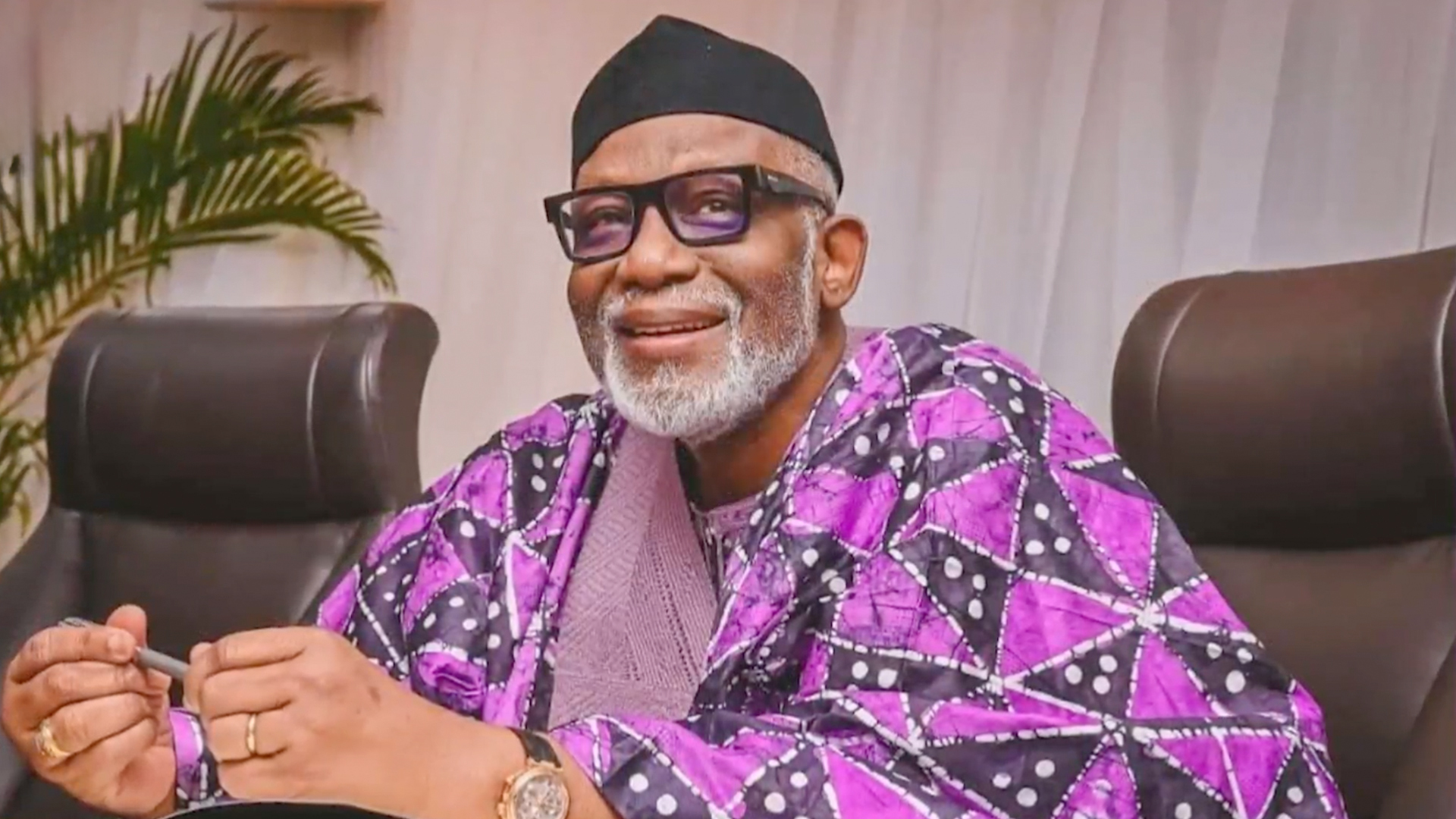
After a long battle with prostate cancer, Arakunrin Rotimi Akeredolu died on December 27 while in office as Ondo State Governor. Akeredolu, aged 67, died in Germany, leading to an outpouring of tributes to the former Nigeria Bar Association President.
After his death, his deputy Lucky Aiyedatiwa, who had faced impeachment proceedings, was inaugurated as governor, laying to rest a months-long leadership controversy in the state.







